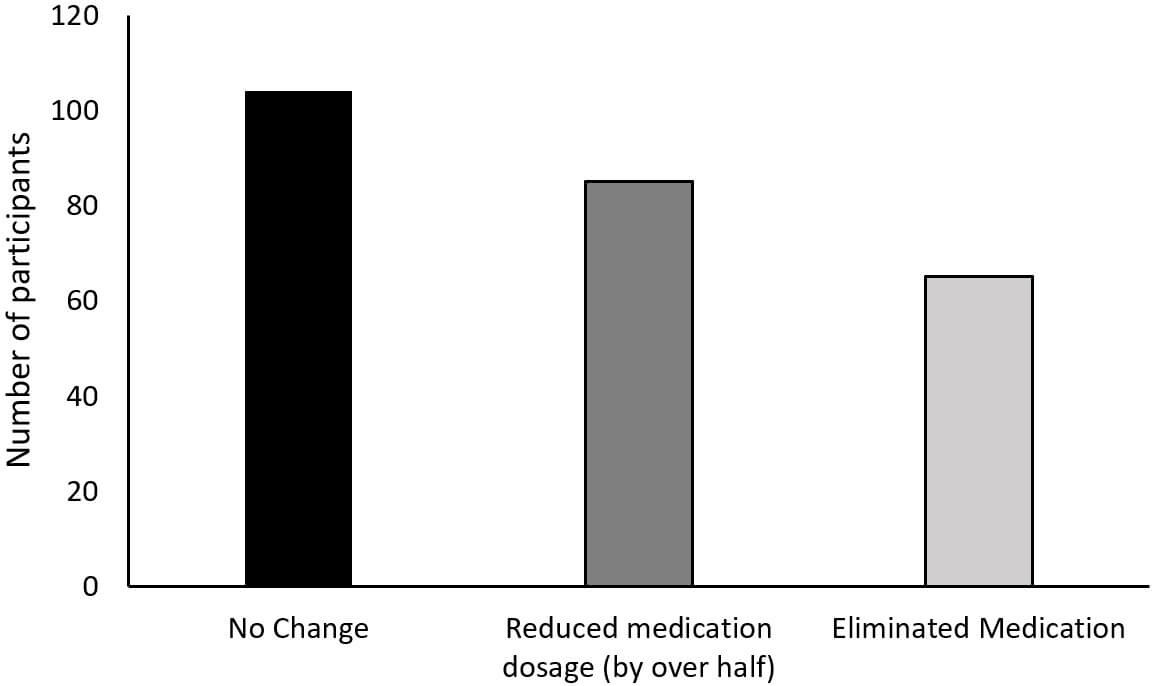
Imagine replacing some of your pills with push-ups or swapping your syringes for squats. That’s the promise hinted at by a groundbreaking study from the UK, examining how CrossFit training might just reduce the need for medication in people with chronic diseases.
Chronic diseases like diabetes, depression, and hypertension are significant burdens on healthcare systems worldwide, often leading to long-term medication use. The study, involving 1,211 UK residents who engage in CrossFit, suggests a promising correlation between this fitness regimen and a reduced reliance on medications.
CrossFit, known for its intense workouts that combine strength training, cardio, and flexibility exercises, has been embraced globally for improving physical fitness. Now, researchers at Lidsen Publishing are exploring how these benefits extend beyond the gym to influence overall health, particularly in reducing medical intervention needs.
According to the study, 54% of participants reported a decrease in medication usage after starting CrossFit, with 69 individuals discontinuing medication altogether. Intriguingly, younger participants (aged 20-39) were more likely to reduce or completely cut their medication compared to older age groups. This trend suggests that the vigorous and holistic nature of CrossFit may particularly benefit younger individuals in managing their health conditions.
Participants also reported fewer medical appointments following their CrossFit routines, with 40% noting a significant drop in the number of visits to healthcare providers. This indicates that physical fitness gained through CrossFit might play a crucial role in managing health without the need for as many doctor’s visits or medications.
The psychological and social benefits of CrossFit were highlighted as well. Many participants praised the supportive community and the mental health improvements that came with regular workouts. One participant, with Crohn’s disease, mentioned how the exercise regimen kept their condition in remission and was advocated by their consultant as a method to prevent flare-ups.
Related Posts
However, it’s important to note that while the study presents encouraging data, it doesn’t establish a direct cause-effect relationship between CrossFit and reduced medication use. Other factors, such as lifestyle changes and overall physical activity, likely play significant roles.
This research adds to the growing body of evidence suggesting exercise as a potential complementary approach to traditional medical treatments for chronic diseases. By reducing the need for medications, regular CrossFit participation could ease the financial burden on healthcare systems and improve quality of life for many individuals.
As lead researcher Athalie Redwood-Mills puts it, “we are just beginning to scratch the surface of understanding how powerful exercise can be in managing chronic health conditions.” With more research, CrossFit could soon become a staple prescription for health professionals everywhere.
While more research is needed to confirm these findings across diverse populations and conditions, the potential of CrossFit to aid in medication reduction is a beacon of hope. It underscores the critical role of physical activity in holistic health management, encouraging individuals to look beyond the pharmacy for ways to improve their health.
Reference
OBM Integrative and Complementary Medicine 2024, Volume 9, Issue 4, doi:10.21926/obm.icm.2404066








